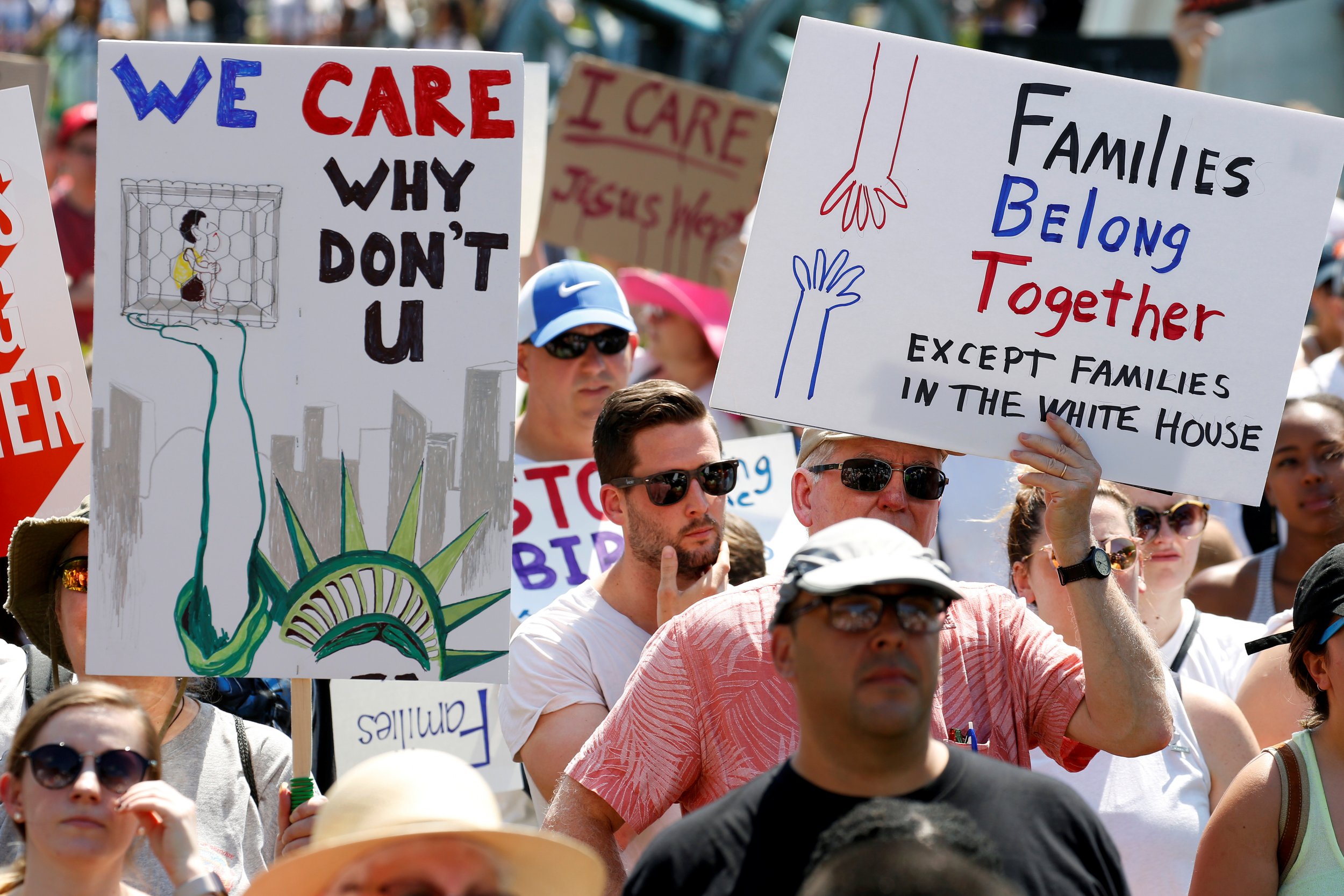
The Trump administration has been tasked with reuniting thousands of separated immigrant families by Thursday, July 26. If the government fails to meet the reunification deadline, it is possible, though unlikely, that the judge could hold them in contempt of court, experts told Newsweek.
The court-ordered deadline was established late last month after public outrage erupted over the White House's "zero tolerance" immigration policy that subsequently resulted in thousands of children being forcibly removed from their parents and sent to detention centers across the country.
Federal judge Dana Sabraw, who handed out the demand, ordered the government to halt family separations and gave it 30 days to reunite the 2,551 children with their parents. (An initial deadline for a smaller pool of children passed earlier this month.) On July 23, just three days before the final deadline, the Trump administration had told the court that it only reunited about 1,200 children with their family. It had also notified the court that over 900 immigrant children had been deemed ineligible for reunification or "not yet known to be eligible."
On Tuesday, July 24, the government had updated the court that it still had over 600 children to reunite within 48 hours in order to comply with Sabraw's order. But even still, Judge Sabraw has said that they are still on track to meet the Thursday deadline.
"It is within their right to fine or imprison government officials who do not comply with the order," Sarah Pierce, a policy analyst and immigration lawyer at Migration Policy Institute, said. However, Pierce finds that course of action unlikely, especially if the judge finds that the government has been making a "good faith effort" to reunite these kids with parents or relatives.
What will likely be the case, Pierce added, is that the government will be forced to provide the court with detailed information on the exact moments of reunification made after the deadline has passed. The administration has already done this when it missed the first court-ordered deadline of July 10, taking an additional two days to reunify families with children under the age of 5.
Betsy Ginsberg, director of the Civil Rights Clinic at Yeshiva University's Cardozo School of Law, told Newsweek that the thirty-day deadline was not random and was carefully chosen by Sabraw given the government's current situation.
"Giving them 30 days to comply is showing just how urgent the problem is while balancing the scope of what it really means to reunite more than 2,000 people," Ginsburg said.
Pierce admitted, though, that she was "nervous" when she first heard the deadline because no one wants the government to rush reunification and make major mistakes. But she says that in many ways the government has "stepped up" to the task and that perhaps the ambitious deadline set forth by Sabraw was what the government needed to make reunifications happen.
But Greg Chen, the director of government relations at the American Immigration Lawyers Association, points out that any pressure that the government is facing is entirely of their own creation. He added that based on the huge amount of money and resources that the government spent on detention camps and other temporary solutions, they should be able to use the same energy in reuniting families.
"The administration really created this crisis on their own accord by separating thousands of parents from their children and inflicting incredible trauma," he said. "As this crisis has unfolded it has become increasingly clear that there was never a plan to reunify the families at the time they separated them."
Uncommon Knowledge
Newsweek is committed to challenging conventional wisdom and finding connections in the search for common ground.
Newsweek is committed to challenging conventional wisdom and finding connections in the search for common ground.
About the writer
Alexandra Hutzler is currently a staff writer on Newsweek's politics team. Prior to joining Newsweek in summer 2018, she was ... Read more
To read how Newsweek uses AI as a newsroom tool, Click here.








